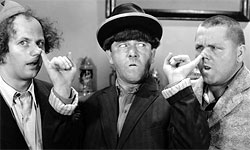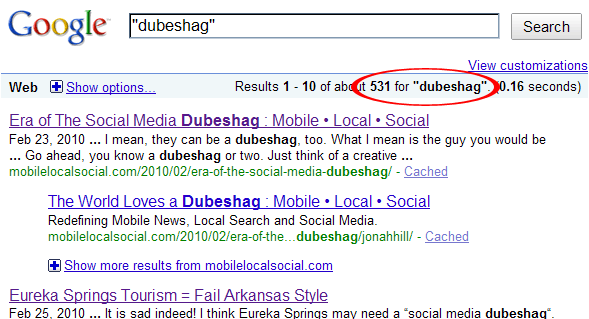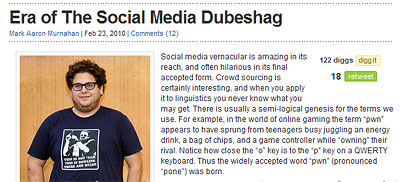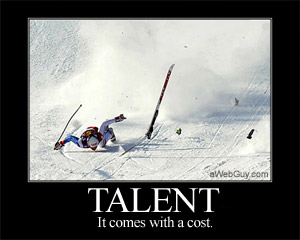
The answer to this question is not always yes. Here is an even better question for you to consider. Will presenting an appealing message to thousands more of the right people who are interested in your products or services be beneficial to your business? Maybe your answer is “no”, but I really doubt that.
There are a lot of questions to be answered about reaching a targeted audience that is important to your business. There is a lot of fear of failure and loss. Sometimes I think the people who doubt potential for increasing business using the Internet the most are often convinced that it only happens for the lucky ones. I have good news for you. You have the luck of the Irish on your side today, and they don’t call me “Murnahan” for being French.
Tough Marketing Questions for Many People
Marketing is a scary thing to a lot of people. I mean, it all seems so speculative, right? Maybe you think it seems like a bunch of guesswork, and some people just get lucky.
Marketing is not so speculative at all. This is not like rolling dice on a craps table and gambling with your company’s money, except for the newcomers to the marketing industry who are trying to earn as they learn. There is a lot of math and science at work. Doing it right sometimes just means making proper calculations. On the other hand, the message you deliver requires marketing creativity, but even creativity is not as speculative as you may imagine. There really are a lot of safeguards in proper marketing, and it does not need to be risky.
The truth is that there are a lot of people who just don’t hit the mark. They don’t get the marketing right the first time, and that opens a floodgate of fears and apprehension. It begs some tough marketing questions for many people. Some of the hardest questions running through people’s minds are as follows:
- “Is it really likely that I can reach thousands more people interested in what I offer”
- “How much will it really help my business?”
- “How much it will cost?”
These are troubling questions that hold a lot of people back from the much more important considerations of what happens if you do nothing, or keep doing the things that do not work. I will offer you some answers to each of these. Please pay attention.
Now Seriously, Would Exposure to Thousands More People Help Your Business?
When you hear something like this it is really easy to assume that it is just hype, or that it will not be worth the expense, right? Often, it truly is just hype, but it is true that there really are thousands of potential customers out there. If you have the right message, at the right time, and deliver it properly, those can be your customers. This is not a myth, and it is not a unicorn hunting expedition. It takes some well crafted effort to achieve, but it really is not all that hard to gain huge amounts of new business with proper Internet marketing.
Is it really likely that I can reach thousands more people interested in what I offer?
Are there really thousands more people out there on the Internet who are interested in what you have to offer? Yes, people have actually even been successful selling dog poop online! Is it likely to reach the right audience with a proper marketing plan? Yes, but a weak plan with little effort will just disappoint you, again.
You can rest assured that there are not very many of the tens of thousands of readers that come to my blog each month who are seeking tips for knitting pajamas. They come because they want ideas, and they want to know what I know about SEO, social media, and other Internet marketing topics. Now what percentage of Internet users do you think are really interested in marketing? Seriously, this isn’t the most fun you ever had. Most people try to ignore marketing until the competition destroys their business. Don’t you think some people will be interested in what you have to offer, too?
How much will it really help my business?
Here is one of those easy questions to answer with math. You know how much each customer is worth to your business, right? You know how much you spend to acquire each customer, right? With this information and other vital data, it is pretty easy to calculate the actual gain to your business. If you do not have solid numbers, you really need marketing help more than you realize.
I understand that you hear all of the talk about the Internet being like the big California Gold Rush of 1848. You are surely hit by hundreds of Internet marketers trying to sell you SEO snake oil or proposing that you will make millions of dollars using nothing but Twitter or Facebook. Yes, most of these offers are crap, and easy to see through.
Now let’s stop being silly and answer this serious question. If it is true that you can realistically reach a targeted audience of thousands more people with an interest in what you offer, wouldn’t it be absolutely absurd to ignore it? Here is the answer: Yes, it would be absolutely absurd, and the scary cost is that your competitor will probably reach the people you missed. Question answered? Yes, I think so.
How much will it cost?
If you see marketing as a net loss, you are really not getting the point of it at all. Perhaps you have just tried all the wrong things and you are tired of trying.
If you think of Internet marketing as an investment in your business, you are on the right track. Like an investment, you must consider how much you want to gain. The consideration of a well thought out and effective marketing plan should be more along the lines of how much money you can get your hands on to do the one thing that will grow your business more than anything else. When people ask me the question of cost before any considerations of the objectives and directives involved, I tell them “You had better bring your lunch money.” This is for two reasons. First, because the more you put into marketing, the more you get out of it. Second, because I have a whole lot to teach this person about how marketing really works.
I have written many articles on the topic of Internet marketing and development cost. Here are a couple of them that you may find interesting:
- “How Much Does SEO Cost?” is The Wrong Question
- “How Much Does a Website Cost?“
- SEO and Web Development Hourly Rates
One More Question!
Oh yes, I already asked you this one, but now it is time for your answer. Will presenting an appealing message to thousands more of the right people who are interested in your products or services be beneficial to your business? I ask this, because it is what makes my telephones ring. It is what I do for my clients. This is not a rhetorical question. Find me here if you want more answers.
Related Articles:




